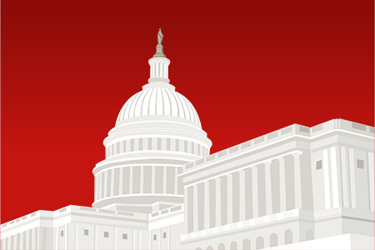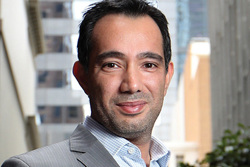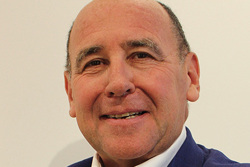Politics And The Pandemic — Where Are They Taking Biopharma?

By Wayne Koberstein, Executive Editor, Life Science Leader
Follow Me On Twitter @WayneKoberstein

An On-Line Supplement (written in October 2020)
At the time I began work on the annual Industry Outlook article, “Politics and the Pandemic — Where Are They Taking Biopharma?,” a panel of FDA scientists had just steamrolled an EUA (Emergency Use Authorization) for therapeutic plasma as a treatment for COVID infection. The issue was not really about the panel’s reasoning, but about the way the Trump administration injected politics into the decision. Since then, the administration kept up the pressure on the agency to ensure approval of a COVID vaccine before election day, though as of this writing, a pre-election approval does not seem likely. But the issue of political pressure will outlast the election because the barn door is now open for presidents to intervene in FDA affairs, whatever the outcome of this political contest.
This is a “Beyond the Printed Page” supplement to the article published in the December 2020 edition of Life Science Leader, where we edited participants’ comments into a more compact form. Seventeen top executives of companies representing the entrepreneurial edge of biopharma innovation answer our call for feedback on how the COVID pandemic and the politics surrounding it could affect their futures and the industry. Published only online, this document contains the executives’ full, verbatim responses to three basic questions:
Considering recent events such as the president’s intervention in the FDA’s handling of convalescent plasma, what concerns, if any, do you have about the agency’s scientific independence in the short or long term?
What do you see as the most challenging political issues for the industry in the coming year and beyond?
In what ways, if any, has the COVID pandemic changed corporate priorities for your company and for life sciences companies in general? For example, do you see more investment in “lower profit” areas such as antibiotics in the interest of public health?
It was inevitable that the subject of this article would overlap with others in the outlook issue this year, when U.S. national politics has become so intertwined with our response to the pandemic’s fierce challenge. (See “Execs Weigh In On Presidential Politics Impacting Biopharma,” https://www.lifescienceleader.com/doc/execs-weigh-in-on-presidential-politics-impacting-biopharma-0001.) But the variety of views expressed here by some of the industry’s most interesting people renders the article as a unique and hopefully valuable contribution to the widespread public discussion on this matter. To lend context to the article’s central theme, we begin with a quote from the central figure:
“The FDA has acted as quickly as they’ve ever acted in history. There’s never been a time… and no president’s ever pushed them like I’ve pushed them, to be honest with you. The FDA is approving things in a matter of weeks that used to take a matter of years.” — President Trump
RELIABLE REGULATION?
Considering recent events such as the president’s intervention in the FDA’s handling of convalescent plasma, what concerns, if any, do you have about the agency’s scientific independence in the short or long term?
 Chandrabali Ghose, Founder & CEO, Bioharmony Therapeutics
Chandrabali Ghose, Founder & CEO, Bioharmony Therapeutics
I have such whiplash when it comes to some of the decisions the FDA has taken under the current administration. I would like to reiterate that I have full faith in the scientists/MDs who work for the FDA. But I feel, in the end, the FDA may succumb to whatever the Trump White House will demand. Not only does this erode public trust in the FDA, but it also leads to vaccine hesitancy that has an acute/much broader implication beyond the COVID-19 pandemic. The number of folks willing to take a COVID-19 vaccine may not be high enough for herd immunity, negating the purpose of all the efforts put into developing a vaccine. Before COVID-19, the anti-vaccine movement had led to numerous outbreaks of measles in the U.S. (https://www.washingtonpost.com/health/2019/08/24/tourist-infected-with-measles-visited-disneyland-other-southern-california-hotspots-mid-august/ ). Situations like this would be collateral damage of the politicizing of the FDA and will take a huge public outreach effort to rectify.
 Leslie Chong, CEO & Managing Director, Imugene
Leslie Chong, CEO & Managing Director, Imugene
Clinical development and review of any therapy is a meticulous and thorough process that should be conducted with strict independent reviewers and processes that should not be governed or driven by politics. Expediting drug development for potential political and monopoly gain lays precedence for inequities in the drug approval process.
 Nawal Ouzren, CEO, Sensorion
Nawal Ouzren, CEO, Sensorion
I believe regulatory agencies, like FDA, should be independent and separate from the political intervention. It is imperative to provide space for scientists to be successful and for the FDA to make impartial decisions based on data, as it always has done. If the public, the patients who need treatment cannot have confidence that the risks and benefits of therapeutics have been independently assessed by qualified people, what will happen? The task of finding, developing and approving a safe and effective COVID-19 vaccine is huge and, while the need is urgent and emotions are running high, it is important that it is done with rigor. It was reassuring to see the leading companies developing vaccines for COVID-19 issue their statement committing themselves to the highest standards and patients’ safety.
 Steven Yatomi-Clarke, CEO & Managing Director, Prescient Therapeutics
Steven Yatomi-Clarke, CEO & Managing Director, Prescient Therapeutics
The credibility and independence of the FDA separates the high standards of the U.S. from countries with less robust processes. It provides confidence to consumers, patients and clinicians. Political intervention has undermined this.
The lack of independence is as disturbing as the agency’s departure from due process and data-driven decisions. What precedence does this set? The FDA’s self-professed charter is to “ensure safe and effective drugs are available to improve the health of the people of the U.S.” It raises so many questions. Does a departure from due process compromise this charter? What assurances are there that political intervention has not compromised a thorough review of the safety and effectiveness of therapies? Where does presidential intervention end? What precedent does this set, and how many lives might be affected? Will the government be equally accountable alongside the agency?
 Mahesh Karande, President and CEO, Omega Therapeutics
Mahesh Karande, President and CEO, Omega Therapeutics
Mixing politics with the pristineness of sciences is a bad idea. Health policy should be predicated on scientific soundness with some policy-related considerations. When you view recent political interventions through these lenses, you realize that we are treading dangerous grounds. We are now in an environment where we have unprecedented control of science, biology, and technology, and that level of control demands a significant degree of sophistication in our actions and independence of scientific thought. To me, any politicization of that independence is a recipe for disaster.
Of course, I am not an expert to critique FDA’s handling of COVID-19 vaccines, particularly, as Omega Therapeutics is not developing any of these vaccines, and because we can only see what’s in the public domain. That said, any time you politicize the independence of a scientific regulatory agency you are potentially creating risk to human health.
 Seth Lederman, M.D., Cofounder, CEO & Chairman, Tonix Pharmaceuticals
Seth Lederman, M.D., Cofounder, CEO & Chairman, Tonix Pharmaceuticals
I am confident about the impartiality of the FDA’s judgements and have little concern that the professionals at the FDA will be influenced by anything but the evidence. Balancing the availability of new therapeutics with safety concerns is a dynamic process that depends critically on the facts unique to each product, and the application of modern methodologies. Speeding the availability of drugs has been a trend before the current administration, both at the level of Congress and the level of FDA rulemaking. Congress enacted “The 21st Century Cures Act” in the Obama administration and “Right to Try” in the Trump administration. We all expect the FDA to be an entirely apolitical body, but the FDA does not exist in a vacuum. In addition to Congress, patients rightfully now have a seat at the table. In practice, the FDA has invited patients and advocacy groups to voice their concerns with the goal of incorporating this feedback into their rulemaking and practice. In the past decade, the FDA has approved certain orphan drugs without traditional evidence for efficacy. Those of us developing pharmaceuticals rely on clear, consistent guidance from the FDA, and also expect the FDA to change with the times, modernize when new techniques are available and make safe and effective drugs available as quickly as possible – balancing risks that are specific to each product. We expect that FDA will employ rigorous statistical methods, accept data from modern adaptive trial designs and real-world evidence. We expect the FDA will continue to uphold the clear, consistent guidelines for COVID-19 vaccines they have put forward, which balance speed, safety, and efficacy. The ultimate priority must be to find effective and safe therapeutics and vaccine options as quickly as possible.
 Philippe Pouletty, Chairman, Abivax
Philippe Pouletty, Chairman, Abivax
The FDA has a long track record of upholding high standards and continues to be regarded as one of the premier regulatory agencies in the world. No one would want to see the public’s trust in regulatory agencies eroded by political interests — there are no winners in that scenario. At Abivax we are committed to developing drugs that are safe and efficacious and we would not compromise our standards on patient safety — or the level of meaningful clinical benefit required — before submitting a new drug application to regulators.
 Mark Straley, CEO, Agendia
Mark Straley, CEO, Agendia
The FDA was built on a foundation of good scientific practices to ensure that new treatments (in the form of devices, drugs or tests) improve patient outcomes before they are released for daily clinical use. While executive orders from any administration may attempt to speed up FDA processes, they do not impact the data bar necessary to clear new and investigational devices, drugs or IVD’s. With that in mind, I do not have concerns about its short or long-term scientific independence.
 Jeff Fischer, President, Longhorn Vaccines & Diagnostics
Jeff Fischer, President, Longhorn Vaccines & Diagnostics
In the short-term, political pressure can have a greater effect on FDA because most vaccines, therapeutics, and diagnostics are moving through the Emergency Use Authorization (EUA) program at the FDA. The EUA program allows decisions to be made prior to standard strenuous testing and FDA review and is focused on getting technologies out quickly based on small data sets. If FDA doesn’t have safety concerns, and effective alternatives are not available, the FDA is likely to expedite priority products no matter the reason for the priority, including political pressure. Once the pandemic has ended and the emergency is lifted, the FDA will fall back to their standard guidelines and procedures, which generally insulate them from political pressure.
 John Temperato, President & CEO, 9 Meters Biopharma
John Temperato, President & CEO, 9 Meters Biopharma
I believe wholeheartedly in the independence of the agency and that they will always act in the best interest of patients, irrespective of outside pressures that are either real or presumed.
 Cameron Durrant, Chairman & CEO, Humanigen
Cameron Durrant, Chairman & CEO, Humanigen
The FDA’s mission and the professionals who uphold it, are critical and they have our continued trust. Our recent conversations with FDA have reinforced their uncompromising dedication to the highest level of science. As we all work quickly and thoroughly, clear communication, direction and transparency is essential, and all our interactions with the FDA in this midst of this pandemic have remained productive, direct and validating of our efforts and shared goals.
 Matthew Price, EVP, COO & Cofounder, Phosplatin Therapeutics
Matthew Price, EVP, COO & Cofounder, Phosplatin Therapeutics
Long-term, no concerns. The FDA is and will remain regarded as the world’s pre-eminent regulator and safeguard of quality in the field of drug development. As we know in the field of oncology, FDA has led the world in understanding how to combine innovative medicine with innovative regulatory science. This has indeed led to shortened development timelines in many cases. It is understandable that the world wants immediate results in treating and preventing COVID-19, and of course that puts FDA in an unenviable position. But that will not change the requirement for rigorous data, nor for agents that drive evidence-based results in addressing COVID-19. We certainly have a more direct view of FDA’s workings in industry than the broader public, but we believe the public at large will come to a broad consensus, over time, on the quality of vaccines that emerge from this period of turmoil.
 James Graham, Managing Director & CEO, Recce Pharmaceuticals
James Graham, Managing Director & CEO, Recce Pharmaceuticals
I believe the pandemic has forced the FDA to renew its focus on infectious diseases and streamline its review process to meet the urgent demands of a pandemic. Hopefully, this spotlight will help advance new drug candidates in this arena that will be critical in preventing future pandemics. The pandemic also has prompted the FDA to evaluate its best practices in improving the speed and efficiency of the clinical trial process. This will greatly benefit both pharmaceutical companies and the patients these drugs are designed to help. Taking appropriate measures to renew the public’s trust in this process will be key.
 Marco Taglietti, President & CEO, Scynexis
Marco Taglietti, President & CEO, Scynexis
When it comes to the most effective promotional statement for a drug, “FDA Approved” remains probably the greatest endorsement and the best recognition for a product not just in the United States but across the world. Any action that may undermine the perceived value of FDA endorsement will have a negative effect on our industry because of the decreased confidence of the public in our products. Pressuring the agency for a faster approval process has been happening before, during public health crisis, not necessarily with a bad outcome. The rapid advancement of treatment for HIV in the nineties is a good example of political pressure leading to a rapid progress in developing antiretroviral therapies while still following rigorous science. However, when political pressure is just an expedient to gain a few quick, short term, political points dismissing a thorough scientific and regulatory process, the final results are not only a diminished reputation of the agency but also, most importantly, an increased risk to introduce products not properly vetted that may hurt patients.
 Bob Maguire, President & CEO, Biolab Sciences
Bob Maguire, President & CEO, Biolab Sciences
Since we are so specialized and focus on developing innovations that address wound care and support the body in achieving optimal performance, we are not worried about maintaining our independence. There will always be federal guidelines and regulations to adhere to, but that comes with the territory of doing work in this field.
 Jonathan Javitt, CEO, NeuroRx
Jonathan Javitt, CEO, NeuroRx
We can’t speak to the review of someone else’s product. Certainly, based on my review of the data, if somebody in my family or I contracted COVID-19, I would hope that convalescent plasma was available. It’s kind of a no-brainer. We have used convalescent plasma for many diseases, most commonly hepatitis for decades. Our experience with the FDA is that their scientific independence is total.
POLITICS INSIDE
What do you see as the most challenging political issues for the industry in the coming year and beyond?
Matthew Price of Phosplatin Therapeutics
We think the industry will face a near-term ethical concern, which can become a political issue, in how successfully developed COVID vaccines are distributed in the coming year. For the most part, industry has refrained from bringing its political baggage — namely, drug pricing — into the highly politicized race to deploy COVID therapies and vaccines, and this is laudable. There is also an issue that has become acute, in terms of how to choose among therapeutic areas. We are living through a craze right now, which has resulted from a very frightening disruption to society. It has meant on some level that pharma and biotech have — thankfully — become heroes. Our industry is life-sustaining for society. But COVID is not the only ailment afflicting us. This kind of rapid shift in focus has been a shock, and we are not accustomed to political light shining on such choices, though we should remember that President Nixon put a spotlight on cancer care, as did the Obama-Biden administration. That said, there is no question that pricing will remain the biggest longer-term issue going forward. It is not easy to address, but the political will to address it is mounting and motivated by real problems. On the innovation side of the industry, we remain hopeful that research funding will continue to flow under a future pricing regime, as this is essential for everyone’s well-being.
Jonathan Javitt of NeuroRx
The industry is taking unprecedently levels of support from the Federal Government. At some point, that’s going to lead to a pricing conversation and the Government, which is ultimately the people of the United States, are going to feel like they invested in critically-needed drugs and should feel like they got a fair price in return.
Chandra Ghose of Bioharmony Therapeutics
There is no denying the cost of prescription drugs is unaffordable to most Americans. Twenty-five percent of diabetic patients stretch their insulin supply longer because of cost, and we can all agree that this is unacceptable. (https://jamanetwork.com/journals/jamainternalmedicine/article-abstract/2717499 ).
A few weeks ago, President Trump signed an executive order to create a most favored nation drug-pricing system, but it is unclear whether this EO has any legs as current laws make this unenforceable. And a $200 gift card is not going to cut it. Regardless of who the next President of the USA is, the drug pricing issue will be front and center in the coming years. This will require the pharma industry and the U.S. government to work together to find a viable solution. COVID-19 has shown us, when there is a will, there is a way to address even the hardest of issues.
Marco Taglietti of Scynexis
President Trump’s recent executive order on lowering the cost of prescription drugs and how it is implemented is bound to be a spotlight issue for the pharmaceutical industry in the coming year. The issue of the cost of prescription drugs is a problem that certainly needs to find a solution, but a hasty, executive order is the wrong way to approach it.
Philippe Pouletty of Abivax
Certainly, maintaining the standards and independence of regulatory bodies governing market access of therapeutics is of paramount importance to the continued success of our industry. Our global market is built on the foundations of regulatory independence – the consumers’ knowledge that the risks and benefits of commercialized therapeutics have been assessed thoroughly and independently, without influence from special interests. In addition, political affirmation supporting the appropriate pricing and reimbursement for innovative, life-altering therapeutics, is critical. This is because revenue from product sales are what allow innovative companies, like Abivax, to attract enough investment to undertake drug discovery and development. Simply put, if investors don't see a route to competitive returns on their investments in biotech — which are underpinned by favorable pricing — they will exit biotech in favor of other industries. Drug discovery in academia and in larger industrial pharmaceutical companies is inefficient compared to what we have today with a balanced academia-biotech-pharma ecosystem; history has shown us that the current model, the investor-backed biotechnology company model, accelerates innovation.
John Temperato of 9 Meters Biopharma
I think it will be all about pricing — whether that’s the true out-of-pocket for patients, or the dead net cost to payors. The industry truly has to price based on the benefits that medications are delivering. We must focus on delivering meaningful science which translates to meaningful differences for patients, providers, and payors. There also will have to be incentives, both pricing and otherwise, that rightfully reward innovation for said products that make a meaningful difference. The world turned to our industry when the pandemic hit, and we need a sustainable model that rewards necessary innovation. Pricing models mustn't be stripped down to the point where investment into our industry doesn’t provide a just return.
Jeff Fischer of Longhorn Vaccines & Diagnostics
During the COVID-19 pandemic politics will be focused on getting vaccines, therapeutics, and diagnostics approved to stabilize the economy and return society to a more normal state. In the coming years, product pricing should be expected to be a key political issue for the industry. At a time where pricing will come under pressure, it is expected that there will be further political pressure to produce some or all of the products domestically to create jobs and ensure availability, further eroding margins.
Cameron Durrant of Humanigen
Beyond the usual suspects of pricing and the like, I think that this year has underscored the importance of pandemic preparedness and the need for rapid response protocols. During the pandemic, the industry has forged a new level of collaboration and shared resources with various government agencies but also has spotlighted many pressure points highlighting the absolute need to have infrastructure available and accessible. As an industry, we are seeing the best, highest use for innovation and we need to commit to advancing those solutions and the opportunities for greater access to care even after life returns to the “new normal.”
James Graham of Recce Pharmaceuticals
One of the most challenging issues for the industry will be maintaining interest from the general and political public in matters of new science advances for the good of all health. It is imperative that science remains at the forefront of people’s minds as well as something worthwhile investing in — especially considering the expense of people’s lives. Hopefully, as an industry we’ll take the key learnings from this pandemic and focus on innovating in the anti-infective space. Antimicrobial resistance is creeping up as pathogens continue to develop resistance to conventional antibiotics — posing a potential global health threat and unfortunately the antibiotic pipeline has all but completely dried up. Our focus in the coming year and beyond is on combating infections with science.
Mark Straley of Agendia
The biggest challenge we and the rest of the diagnostic industry face, regardless of the political environment, is reimbursement. Breast cancer diagnoses are already filled with questions and anxiety for patients. The last thing patients need to hear is that genomic tests are helpful for treatment decisions, but reimbursement is not guaranteed and there may be some out-of-pocket costs associated with using them. How do you share that information with a patient and their family members without creating more anxiety?
Genomic tests provide physicians vital information to help them make more informed treatment decisions for their patients. Overall, we need to strive to do better at securing reimbursement for our tests. The results of these tests help physicians and patients hold an informed discussion about the treatment path that lies ahead. Take for example our MammaPrint and BluePrint tests. MammaPrint provides a binary result of High or Low risk of breast cancer recurrence and BluePrint identifies the pathway driving the growth of a tumor. Together, the information from both tests is used to build the most effective treatment plan for a patient. Securing this information before treatment begins is helpful for the physician, the patient and the patient’s family. Reimbursement should not be part of this discussion at all.
Mahesh Karande of Omega Therapeutics
Broadly speaking, politics looks at medicine through two lenses — access and price — and reputation-wise, the biopharma industry unfortunately occupies an unenvious spot in public conscience. Political expediency dictates the governing environment and bluster, depending on who is in charge. However, as science continues to progress, there are more fundamental issues that we must think through.
We are in unprecedented times in terms of humanity’s progress in biology. We can control science and biology to levels that we don’t fully grasp consequences of as a society. In modalities like gene editing and gene therapy, we are changing people’s innate, native DNA sequences to cure disease. We do not have complete understanding of potential collateral ramifications from a safety standpoint. Do we have the correct regulatory frameworks to deal with new modalities that fundamentally transform how we think of medicine? How do we maximize the impact of our control of biology? How do we conduct clinical trials without comparative precedent, and where do we stand on ethics?
While access and price will continue to remain high in the political discourse, advances in biology and medicine will force other types of discussions that will be equally, if not more important.
Nawal Ouzren of Sensorion
It is important that regulatory agencies continue to follow — and improve upon — the robust processes we have developed for approving therapeutics. If the authorities want people to get vaccinated or treated with a therapeutic for COVID-19, or any disease, it is a political imperative that the public trusts that the product’s risk/benefit profile has been adequately assessed. One challenge will be the speed at which we can make doses available to the public, as it usually takes months to deliver commercial supplies and, while there are efforts ongoing to do this in parallel to testing, this still could cause tension as it plays out over the coming months. For companies not active in the COVID-19 space, the challenges are different. We continue in developing treatments for other diseases and carrying out clinical trials in an environment where priorities and safety protocols change rapidly, due to the pressures of treating and preventing the spread of COVID-19. Like most of our peers, we have seen increased workloads and delays.
Bob Maguire of Biolab Sciences
Access to and cost of care will continue to be major challenges. We’ve now seen what we can do within virtual environments, and that has opened up care options for a lot of individuals who didn’t have access to care, or were limited, prior to the pandemic. As the Centers for Medicare and Medicaid (CMS) determine what will continue to remain reimbursable after the pandemic subsides, this also will present challenges –– and perhaps some opportunities –– for many in the industry.
Leslie Chong of Imugene
The challenge is to enroll critical or chronic disease patients; medical centers have focused and dedicated resources to COVID-19 patients and cancer patients’ appointments are sometimes considered “elective” and clinical trial sites have placed trials on hold. Drug or therapies such as cancer vaccines and oncolytic viral therapy may be harder to transfer or internationally as there may be stricter regulation and rules applied to the import licenses.
Seth Lederman of Tonix Pharmaceuticals
I am not a reader of the political tea leaves, but I genuinely hope that the focus of the industry and government remains on durable, sustained efforts in pandemic preparedness. As we find treatments and vaccines for COVID-19, there will be understandable eagerness to move on from the conversation and return to “normal.” However, the lesson we should learn from this pandemic is just how vulnerable our current system is to future outbreaks. Vaccine research and development have to stay a priority, otherwise we will again be caught on our back foot. In the past, the government’s interest in vaccine research and development capability was short-lived. The decades-long U.S. biopharmaceuticals’ push to out-source and off-shore activities related to research, development, and manufacturing has decreased the U.S.-based infrastructure to develop vaccine products.
Steven Yatomi-Clarke of Prescient Therapeutics
There’s little doubt that healthcare costs and access are going to be important topics in the upcoming election, as it has been in previous elections. Pharmaceutical pricing is often used as the punching bag for the overall cost of healthcare, sometimes with good reason, despite being only a fifth of the contributing cost. Political debate on pricing will create valuation uncertainty for biotech companies, which will filter down to funding uncertainty for many of these companies. Moreover, the compromised independence of the FDA is going to be a major political issue, and if it is not, then it should be. It sets a very dangerous precedent.
PROFITS & PRIORITIES
In what ways, if any, has the COVID pandemic changed corporate priorities for your company and for life sciences companies in general? For example, do you see more investment in “lower profit” areas such as antibiotics in the interest of public health?
Mahesh Karande
COVID-19 has essentially changed corporate priorities for everyone. In biopharma, any company that has seen an opportunity to intervene – whether with vaccines, treatments both core and palliative – has jumped in with both feet. At Omega, we have embarked on a program to treat inflammation-related collateral issues created by COVID. The pandemic has forced hard prioritization on our industry. Choices have had to be made related to mitigating effects of shifting timelines, working with external partners, importance of real estate, prioritizing lab versus office space, work from home versus on-site, and so on.
We as humans instinctively and primally know what is good for us, but we usually act only where danger is imminent. Investment activity is largely dictated by ROI, and although it may be years before another superbug is upon us (this time bacterial in nature), we have failed to adequately invest in antibiotic research. Most antibiotic-focused companies struggle to find investors and those who do must often operate in limited capacity. Imagine if we invested a fraction of what has been poured into COVID-related stimuli and relief into antibiotics. It would save hundreds of thousands of lives and trillions of dollars in the long-term. It would be a good investment.
Marco Taglietti
The COVID-19 pandemic has put the spotlight on the threat of emerging pathogens, and therefore on the urgent need for effective anti-infectives against them. As a company developing a new class of antifungals, Scynexis has long understood and advocated for the urgent need for innovation to combat the threat of emerging pathogens. For example, despite the known rise in drug-resistant fungal infections, like Candida auris, which pose a serious global health threat, there has not been a new class of antifungal agents in 20 years. In fact, there are only three classes of antifungal drugs currently on the market. To address the antifungal crisis, we are developing a new class of broad-spectrum antifungals to treat drug-resistant fungal infections like Candida auris. We expect the additional spotlight from this current pandemic will strengthen the support from the public, from the legislators, from the industry and from investors toward our mission.
Chandra Ghose
Bioharmony Therapeutics is an infectious diseases company, developing nontraditional antibiotics to address the global AMR (antimicrobial-resistance) issue, the not so silent pandemic that has been brewing in the background for years, and COVID-19 has probably made worse. While there is no doubt that AMR is an imminent threat, or that an infection with a superbug that is resistant to many different classes of antibiotics is a huge unmet need, antibiotics are still not the primary focus of pharma as it should be. There are only 42 antibiotics in clinical development that can treat such multidrug-resistant infections, whereas there are hundreds of drugs for cancer in clinical development.
As a biotech startup in the space, our funding situation is difficult given the pricing/market issues. There are some bright spots on the horizon, I would say, such as the AMR Action Fund, formed by an association of 23 companies that have joined forces to bring to market 2-4 new antibiotics to patients by the end of this decade, and the other being novel, innovative legislature that is currently before Congress: the DISARM Act and the PASTEUR Act. Both these acts could be game changers to antibiotic developers as it would help these companies recover some of their R&D costs and thus focus on innovation to address AMR.
In all my answers, you can see a theme forming: when government and pharma work together, even the toughest problems can be tackled, as we have seen with Operation Warp Speed, which has taken a 4-6 year vaccine development timeline and shortened it to about a year. Whether the lessons we have learned from the COVID-19 pandemic can be carried forward to address the silent AMR pandemic is still unknown. I hope we don't wait too long as every year more than 700,000 people lose their lives to AMR.
Seth Lederman
For Tonix, the pandemic has highlighted the dearth of domestic research and development capabilities and manufacturing facilities for vaccines and other pharmaceuticals. It would be a tragedy if after discovering a viable treatment or vaccine for COVID-19, we lacked the manufacturing capacity to get it to people who need it rapidly. We have renewed our interest in building top-of-the-line manufacturing right here in the United States so there is not a supply chain interruption between the lab and the patient and vaccines. Pandemics on this scale require us to think long term and we hope that reprioritizing domestic manufacturing in the pharmaceutical industry will help prepare the country for new pandemics or attacks with capability for large-scale treatment and/or vaccination.
John Temperato
At 9 Meters, we believe that it's best to focus on your core business, your core pipeline, while being civically responsible. If a company's existing technology might genuinely be suited to exploration in an area of emergent or universal need that falls outside your core focus, you should do what is right and not what is simply convenient for the company; that is, to find a way to progress technology for potential societal benefit.
James Graham
When the COVID pandemic hit, we broadened our focus to include SARS-CoV-2. We have two compounds being tested against SARS-CoV-2 virus in organoid systems and released results from the in-vitro study that showed both compounds were effective in reducing the viral load in samples at increasingly higher doses. The pandemic has put the spotlight on the anti-infective space, we are not only getting attention for research institutions looking to partner on exploring the potential of our synthetic compounds, but investors are seeing the value too. We recently completed a capital raising of $27.9M AUD. The placement was strongly supported from local and overseas institutional, sophisticated investors. Additionally, we are looking beyond the COVID-19 disease opportunities, to antibiotics with an initial focus on sepsis. Ultimately, we believe the pandemic has provided areas for our company to excel in that did not exist before the pandemic.
Bruce Steel, CEO, Equillium
The COVID-19 pandemic has had a significant impact on public health, as well as the economy around the world. During these unprecedent times, it’s our industry’s responsibility to step up, adjust priorities and allocate the time and resources to develop safe, effective therapeutics and vaccines for patients worldwide. It’s also critical that we don’t cut corners and ensure that everything we develop is rigorously tested and safe for patients.
At Equillium, our mission is to improve the lives of patients suffering from severe immuno-inflammatory disorders. Our lead drug candidate, itolizumab, is highly differentiated and selectively targets the CD6-ALCAM pathway, which has been shown to modulate the trafficking and activity of T effector cells — which drive multiple immuno-inflammatory diseases.
In hospitalized COVID patients, mortality is primarily driven by immuno-inflammatory complications, including the down-stream effects of the cytokine release syndrome and acute respiratory distress syndrome, both of which are known to be driven by T cells. While we remain focused on our other clinical development programs in acute graft-versus-host disease, lupus nephritis, and asthma, in July we announced plans to initiate a global, randomized, double-blind, placebo-controlled clinical trial in hospitalized patients with COVID-19 by year-end.
Steven Yatomi-Clarke
Investment in anti-infectives and vaccines has been steadily decreasing from already low levels for decades, and the pandemic has confirmed that this has been a false economy. Governments cannot afford to not invest in these areas.
Remote working has slowed certain aspects of drug development; for example, in labs conducting preclinical experiments and assay development.
Conferences and business forums moving online has proven to be remarkably efficient. Whilst face-to-face meetings are indispensable, we’ve learned that we can communicate more frequently and just as effectively remotely. Access to information from conferences is infinitely more effective in virtual forums, by removing the dilemmas of overlapping sessions, accessing content on demand, even after the conference is finished.
Investor roadshows also have moved virtually, and I can actually access many more people per meeting. The considerable funds otherwise spent on unnecessary travel can be deployed in other areas of the business, and the time saved in travel is enormous. I have calculated that I have saved over 50 days of travel so far this year, with a corresponding increase in productivity. In the post-COVID world, I hope many of these forums remain virtual, or have virtual options. In between conferences, I hope that counterparties for meetings accept virtual meetings as the norm.
Cameron Durrant
The pandemic hasn’t changed our priorities as much as it has sharpened our focus. As a leader in addressing immune hyper-response or “cytokine storm,” 2020 has been a pivotal year for Humanigen as we have advanced our lead drug candidate, lenzilumab, for COVID-19 with top-line Phase 3 data planned for the fourth quarter. Across life sciences, the pandemic response required rapid innovation which oftentimes comes at enormous risk. In many cases this has led companies to completely change and improve their business models. This also reinforces the need to keep industry engaged and incentivized to continue to take these risks for the good of public health.
Leslie Chong
Companies are now looking at best working practices and mental health for their employees to support flexibilities during the pandemic.
The vulnerable populations’ disease has not receded due to the pandemic, so priorities of a cancer immunotherapy company remain the same, but the ways to achieve a company’s goals and obtain data have changed. For instance, increases in remote monitoring, access to medical centers, shipment of transfer of medical products and increase in telemedicine has been evident in recent times.
Matthew R. Price
The crisis has made it self-evident that government and industry must work closely together in defining priorities for society, vaccines and resistance-directed antibiotics among them. That said, it has not changed our decision making, as we are a very lean and focused company within oncology therapeutics (though we did work informally in support of a trial of a COVID therapeutic candidate, which was gratifying to do). We also have experienced, and managed, a drastic shift toward remote work, along with a shift in senior staff: our Chief Medical Officer Joseph O’Donnell, MD stepped in from our Scientific Advisory Board, while his predecessor, Jose Jimeno, MD, Ph.D., moved from the CMO role onto the SAB, having been unable to travel to the U.S. from Spain for many months. We found this “swap” rather elegant, and these two gentlemen are working together now more closely than ever. Our team has been extremely proud to continue to meet our milestones during this period. As we like to say: Onward and upward!
Mark Straley
While navigating new guidelines to make sure our employees have a safe working environment, we remain focused on our mission “to improve patient outcomes and the quality of cancer care, from early intervention and diagnosis all the way to cure or metastatic treatment planning.” We will continue to focus on delivering the most informative genomic tests on the market for patients with breast cancer. We are proud that we have not had any testing delays — this is of the utmost importance to the cancer community, as we are firm believers that under no circumstance should cancer diagnoses and treatment be delayed. Agendia is investing effort and resources to implore women to go to their doctors and get screened.
While we must learn from the changes we made as an industry during the pandemic, we have to remember that breast health starts with a mammogram. It is our responsibility to be in lockstep with the medical community to ensure that we provide a safe environment for women while we encourage them to not delay or forgo their mammogram as the first line of defense. The broader healthcare community must provide patients with the access to the care they need, and ensure they are safe while receiving it.
Jeff Fischer
The COVID-19 pandemic is likely to have only a short-term change in corporate priorities. Investment will continue to follow long-term healthcare and demographic trends. The inherent risk in the life sciences industry makes it difficult to pivot to products in the interest of public health unless Government is paying for the development and ensuring a marketplace.
For Longhorn, in particular, as a seven-person, veteran-run company, we jumped into action and shifted focus to production and partnerships, on the diagnostics side. As a key contributor in the fight against COVID-19, we have delivered over 30,000,000 sample collection tubes containing our PrimeStore MTM product during the pandemic, across the globe, with the help of these strategic partnerships.
Nawal Ouzren
Our corporate priorities remain the same. We recently raised €31 million (US$36.5 million) in an oversubscribed private placement to leading specialist U.S. and European investors to develop our current gene therapy programs (OTOF and USHER), potentially broaden our gene therapy pipeline and support pharmacology and clinical studies for the Phase 3 development of lead small molecule candidate, SENS-401 to treat Sudden Sensorineural Hearing Loss (SSNHL). Conducting this financing remotely, without face-to-face meetings, was challenging and I am proud that we were able to successfully conclude it. As with many clinical studies, our Phase “AUDIBLE-S” clinical trial in 258 SSNHL patients was delayed during the COVID-19 disruptions, but we have adapted and continue to work effectively and expect top-line data in mid-2021.
Philippe Pouletty
Abivax quickly recognized that our lead product, ABX464, might be helpful to prevent and treat the hyperinflammation, or “cytokine storm,” that leads to acute respiratory distress syndrome and death in these patients. This is because of its unique triple action: a potent anti-inflammatory effect; the ability to reduce SARS-CoV-2 viral replication, and to promote tissue repair, potentially decreasing pulmonary tissue damage. We rapidly started working intensely with regulators, the French investment bank Bpifrance, hospitals around the world and others on setting up a 1,034-patient double-blind, placebo-controlled Phase 2b/3 trial to test this hypothesis which is now enrolling patients in Europe and Latin America. Because ABX464 is an orally available small molecule, capable of being used in an out-patient setting, and benefits from a rapidly scalable manufacturing capacity, we believe we may be uniquely positioned to provide a complementary approach to preventing the severe sequelae of COVID-19 and reducing hospitalization in affected high-risk patients. This would make treating the COVID-19 patients a real possibility while we wait for sufficient quantities of vaccine as well as providing a treatment option for patients who, for whatever reason, are not being vaccinated or who do not develop protective immunity post vaccination.
Although ABX464 shows potential to effectively treat COVID-19, we remain prudent on expectations for the miR-AGE trial given the complexity of the disease. Our focus remains on chronic inflammatory diseases. We are putting all our efforts into the further clinical development of ABX464 and hope that, with its unique properties and mechanism of action, it will make a significant difference for patients in need of novel therapeutic options.
Bob Maguire
We have not changed our focus because of the pandemic. To help meet the needs of healthcare providers, we did begin distributing COVID-19 antibody test kits, and we are currently evaluating one of our existing products for its potential use in supporting COVID patients who have respiratory issues. But we remained focused on wound care and helping individuals achieve optimal health. Across the industry, I think we’ll certainly see a lot of consolidation and some organizations shifting their product focus, but there will always be a need for specialty, advanced-science drugs and solutions.
---
LEADING VOICES
These company leaders contributed their thoughts to our annual forecast article with answers to three critical questions about politics and the pandemic. This “Beyond the Printed Page” supplement to the article published in the magazine contains their full, verbatim comments in response to our questions.
- Leslie Chong, CEO & Managing Director, Imugene
- Cameron Durrant, Chairman & CEO, Humanigen
- Jeff Fischer, MBA, President, Longhorn Vaccines & Diagnostics
- Chandrabali Ghose, Founder & CEO, Bioharmony Therapeutics
- James Graham, Managing Director & CEO, Recce Pharmaceuticals
- Jonathan Javitt, M.D., M.P.H., CEO, NeuroRx
- Mahesh Karande, President and CEO, Omega Therapeutics
- Seth Lederman, M.D., Cofounder, CEO & Chairman, Tonix Pharmaceuticals
- Bob Maguire, President & CEO, Biolab Sciences
- Nawal Ouzren, CEO, Sensorion
- Philippe Pouletty, Chairman, Abivax
- Matthew Price, EVP, COO, and Cofounder, Phosplatin Therapeutics
- Bruce Steel, CEO, Equillium
- Mark Straley, CEO, Agendia
- Marco Taglietti, President & CEO, Scynexis
- John Temperato, President & CEO, 9 Meters Biopharma
- Steven Yatomi-Clarke, CEO & Managing Director, Prescient Therapeutics
